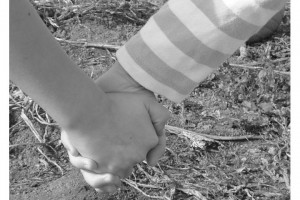In John 17 Jesus prayed a prayer for his disciples. And while he was praying he was thinking about me and you. Some 2000 years ago my face flashed through the mind of my Savior moments before he was arrested and sentenced to death.
“My prayer is not for them alone. I pray also for those who will believe in me through their message…” (vs 20). Jesus reached through time and space and said a prayer for me…for us. As he prayed he visualized the face of every believer living, and those of us to come. We were on his mind before he died for us.
And you know what he was thinking? He was thinking what every parent thinks about during the long weeks of summer vacation when school is out and the kids are home and restless. Please…get along. Stop fighting. Work it out. Be one.
The one prayer that Jesus prayed for us was a call to be unified.
“That all of them may be one, Father, just as you are in me and I am in you. May they also be in us so that the world may believe that you have sent me.” (vs. 21). The way the world will know Jesus is by the example of oneness of his followers. And this kind of unity can only come from a sincere love for one another; a love that Jesus commanded:
“One of the teachers of the law came and heard them debating. Noticing that Jesus had given them a good answer, he asked him, ‘Of all the commandments, which is the most important?’ ’The most important one,’ answered Jesus, ‘is this: Love the Lord your God with all your heart and will all your soul and with all your mind and with all your strength. The second is this: Love your neighbor as yourself. There is no commandment greater than these.’” Mark 12:28-31.
“A new command I give to you: Love one another. As I have loved you, so you must love one another. By this all men will know that you are my disciples, if you love one another.” John 13:34-35.
Jesus wasn’t making a friendly suggestion. He was lovingly commanding us to live in peace with one another. To walk in unity, from then until now. And by this the world would know Jesus. In that very moment, when Jesus was preparing to die, he paused and prayed for us. He must have known how hard this command would be for us to follow. He must have realized that I would need the extra prayer support for those days when I just want to blast another believer because they “got on my nerves” or “didn’t treat me very well”. Whatever the justification for our irritation, Jesus commanded us to love. To love as Christ loved us. To be one as Christ is one with the Father.
So, how are we doing on this? I know I have a lot of room for improvement. Which makes me both humbled and grateful that Jesus said a prayer for me. That Jesus was thinking of me all those years ago. It reminds me of how much he loves me…and how much he loves this crazy, messed up world.

If you're new here, you may want to subscribe to my RSS feed. Thanks for visiting!

